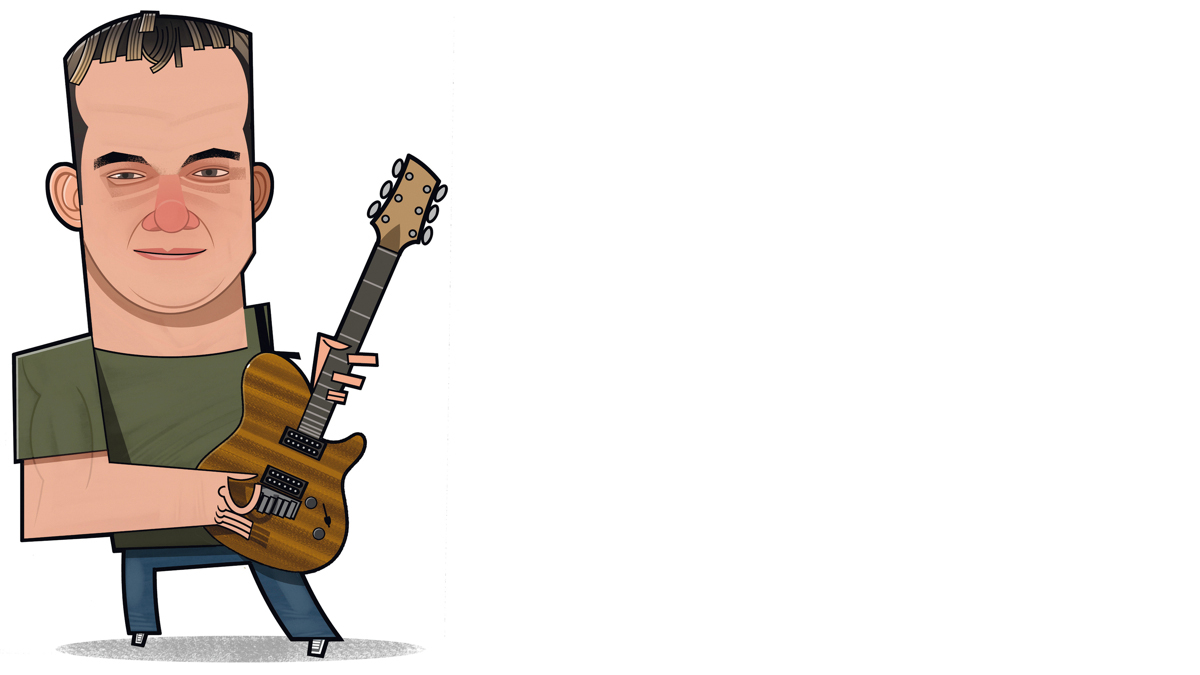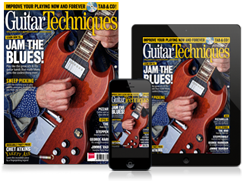On rhythm...
Soapbox from Jason Sidwell

Rhythm. How does that term work for you? Does it imply power chord playing? Maybe you relate it to 16th note groove based genres? Or perhaps (wrongly) consider it a 'subs bench' relegation that has you positioned at the back of the stage, never to experience the spotlight enjoyed by your band's better six stringer and snazzily dressed vocalist?
Thing is, rhythm is deeply embedded in pretty much everything we do, regardless of genre, tones or ability levels. It's not a role in the band but rather is what joins all instruments (melodic and percussive) together. It's THE point of reference from which music emanates. As Bryan Baker stated in GT211's video tutorial 'if the phrasing is interesting, it doesn't matter what you're actually playing really. The notes matter but matter far less than the rhythm, the groove and the pocket." You may not have reached his lofty heights of virtuosic creativity or 100% agree with him but his point is worth contemplating.
Consider this; played with authority, a confident rhythmic performance with some 'odd notes' is often easier for an audience to accept (eg dressed well, a pentatonic's minor third against a major chord is a universal given) than 100% right notes played with little rhythmic conviction.
As guitarists, we often put all our efforts into the notes. Certainly, GT has a biasing towards informing you about the scales and how they fit over various chords and progressions. But how you make the notes work - how you 'sell' them - is largely down to the rhythmic presentation. To this end, re-read John's improvisation article (page 16 onwards) as he covers numerous rhythm based objectives for stronger soloing phrases. So aligning with Bryan Baker, my point is this; developing your rhythmic skills is of primary important.
Years ago, I remember reading of rock bands (Mr Big was one of them) running rhythm section only rehearsals where the drummer and bassist got together to macro analyse how they were locking together. Conversely, the other week Stuart Ryan, Stuart Clayton and I ran our quartet rehearsal sans drums (truth be told, the drummer phoned in with the flu!). Ultimately, it was good for us to clarify how the guitar and bass parts locked together as without a backbeat or busy hi hats/cymbals we had to agree on a communal pulse that wasn't filled with constant 8th or 16th based percussion.
So I'd like you to pay particular attention to the rhythms on offer in all song transcriptions and guitar tutorials you read this month and absorb them into your own playing. Here's hoping you become (even more of) a rhythmic monster musician!
Want all the hottest music and gear news, reviews, deals, features and more, direct to your inbox? Sign up here.

